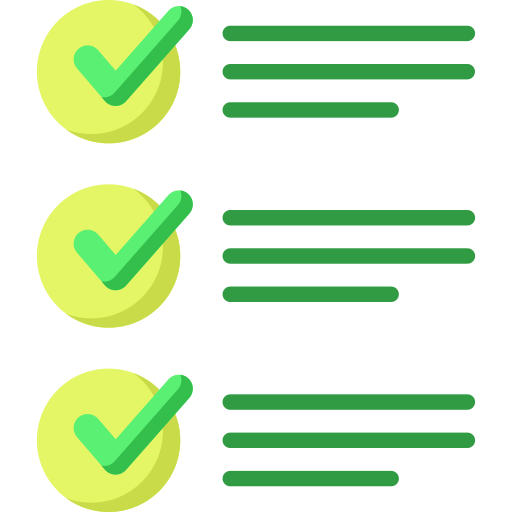
Program Highlights
Current or aspiring Instructional Coaches can benefit from the program, even if they don’t believe they will pursue a position as an assistant principal, principal, assistant superintendent, superintendent, or other administrative role. Aspiring P-12 education administrators will have the tools they need to improve student learning through a systems approach.
This program is the only one of its kind in the state with an instructional leadership focus.
- Ideal for many audiences: You must already have your master’s degree in education to be eligible for the program, but our students come from a variety of roles with a variety of goals, including aspiring building and district leaders, instructional coaches, classroom teachers, special education teachers, and those in supportive roles such as content specialists, guidance, and counseling services.
- Convenient format: The program is designed to be pursued part-time. Courses are delivered online in real time (synchronous format) during evenings and on weekends.
- An opportunity to connect: You’ll enter the program in a cohort of students, and you’ll progress with those students throughout your education, allowing you to learn from each other and build your peer and professional network.
- Affordable: Competitively priced among both public and private colleges, with the built-in added value of regional professional networking virtual seminars and in-person seminars, where students can come together around important topics in education for discussion and problem-solving.
- Embedded internship hours: The New York State Education Department requires 600 internship hours in order to issue certificates. We make the most of your time by embedding 300 of your internship hours into your courses – utilizing research and other projects within your schools.
- Final Internship course: The remaining 300 hours are in the final internship course, where students complete one of three projects depending on their roles (a program review for curriculum specialists, art, music, or ENL leaders; a building strategic plan for aspiring assistant principals and principals; a team coaching plan for students who want to continue as instructional coaches).
- A stepping stone to the Ed.D.: Students in this program can pursue the Educational Leadership Doctoral (Ed.D.) program at Russell Sage, which requires 60 credits of graduate study in the Educational Leadership course sequence.
This program is unique because we formed it around the Professional Standards for Educational Leaders (PSEL). Older programs have to find alignment with PSEL standards but did not create curriculum based on them.
PSEL Standard 1 Mission, Vision, and Core Values: Effective educational Leaders develop, advocate, and enact a shared mission, vision, and core values of high-quality education and academic success and well-being of each student.
PSEL Standard 2 Ethics and Professional Norms: Effective educational leaders act ethically and according to professional norms to promote each student’s academic success and well-being.
PSEL Standard 3 Equity and Cultural Responsiveness: Effective educational leaders strive for equity of education opportunity and culturally responsive practices to promote each student’s academic success and well-being.
PSEL Standard 4 Curriculum, Instruction, and Assessment: Effective educational leaders develop and support intellectually rigorous and coherent systems of curriculum, instruction, and assessment to promote each student’s academic success and well-being.
PSEL Standard 5 Community of Care and Support for Students: Effective educational leaders cultivate an inclusive, caring, and supportive school community that promotes the academic success and well-being of each student.
PSEL Standard 6 Professional Capacity of School Personnel: Effective educational leaders develop the professional capacity and practice of school personnel to promote each student’s academic success and well-being.
PSEL Standard 7 Professional Community for Teachers and Staff: Effective educational leaders foster a professional community of teachers and other professional staff to promote each student’s academic success and well-being.
PSEL Standard 8 Meaningful Engagement of Families and Community: Effective educational leaders engage families and the community in meaningful, reciprocal, and mutually beneficial ways to promote each student’s academic success and well-being.
PSEL Standard 9 Operations and Management: Effective educational leaders manage school operations and resources to promote each student’s academic success and well-being.
PSEL Standard 10 School Improvement: Effective educational leaders act as agents of continuous improvement to promote each student’s academic success and well-being.
First Spring Term
Leadership for Equity (3 credits)
Evidence Into Action: Systems Planning (3 credits)
Total: 6 credits
First Summer Term
Leadership of the Curriculum (3 credits)
Total : 3 credits
First Fall Term
Building Professional Capacity (3 credits)
Data Literacy (3 credits)
Total: 6 credits
Second Spring Term
Developing Purpose-Driven Professional Communities (3 credits)
Community of Care: Students, Faculty, Community, and Staff (3 credits)
Total: 6 credits
Second Summer Term
Internship I (3 credits)*
School District Leader Capstone (if pursuing SDL, 3 credits)
Total: 3-6 credits
Second Fall Term
School District Leader Capstone (if pursuing SDL, 3 credits)
Internship I or II*
Total: 3 credit
*Students choose when they do their internship, which can span summer/fall semesters or fall/spring semesters based on what’s convenient for them.
Our Instructional Leadership Advanced Certificate program isn’t just about you earning your SBL/SDL credentials. We want you to be able to apply your coursework in the field while earning the 600 required internship hours. Here’s how we do it:
| Course Title | Aligned Field Experience (Internship) |
| Leadership for Equity | Self-Assessment .5 Field Experience Analysis of a School or Department Culture of Learning (50 hours) |
| Evidence into Action: Systems Planning | None |
| Data Literacy | .5 Credit Field Experience (50 hours)Analysis of Program Change Based on Evidence of Student Learning/Program Effectiveness-Implementation |
| Building Professional Capacity | .5 Credit Field Experience (50 hours)Supervisory Cycle with Growth Plan |
| Developing Purpose-Driven Professional Communities | .5 Credit Field Experience (50 hours)Create School/Department Professional Development Plan |
| Leadership of the Curriculum | .5 Credit Field Experience (50 hours)Analysis of Department/Grade level Curricular /Program Change Implementation |
| Community of Care: Students, Community, Faculty, and Staff | .5 Field Experience (50 hours)Select from student discipline, student extracurricular participation, student percentage (disproportionality) in any program, analyze impact and generate remediation |
| Internship II: Integrative Project and PSEL field experiencesFulfills 300 hours of internship | One of these integrative projects: -Program Review: For curriculum specialists, art, music, or ENL leaders -Building Strategic Plan: For aspiring assistant principals and principals -Team Coaching Plan: For students who want to continue as instructional coaches Final presentation of integrative projects with invitations to area administrators, in-person and delivered remotely via Zoom Final self-assessment Attendance at four topical seminars Professional Log documenting hours of field experience at the building and district levels |
Admission Requirements
GRE scores are not required for admission to this program but applicants must:
- Hold a master’s degree in education or a related field
- Have a minimum of 3 years of teaching experience
- Provide a resume
- Provide a recommendation from their district plus two additional professional references
- Provide transcripts from both their undergraduate and graduate institutions documenting a minimum 3.0 GPA.



Durand
Associate Professor and Chair, Institutional Review Board

Shea
Assistant Professor of Education and Program Director for Graduate Certificate Programs

Mundell
Assistant Professor of the Practice of Education, Instructional Leadership



